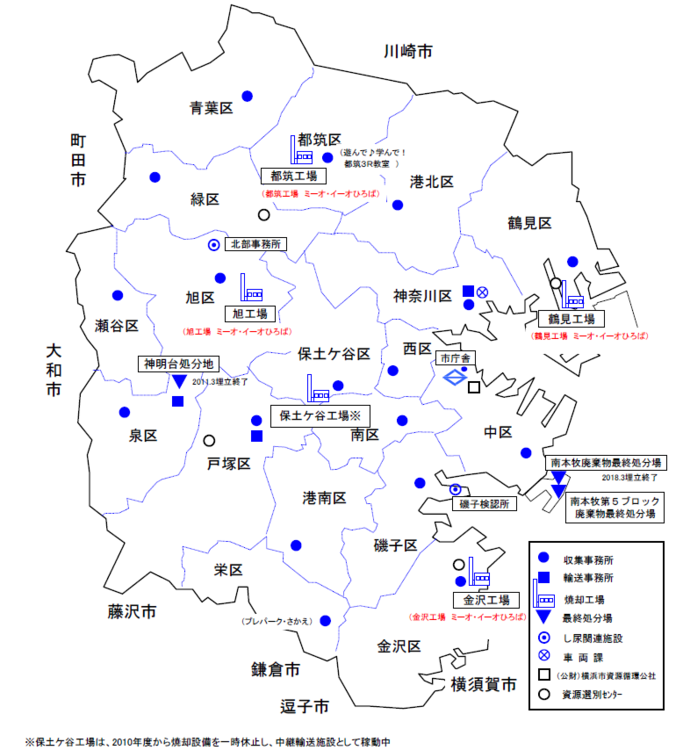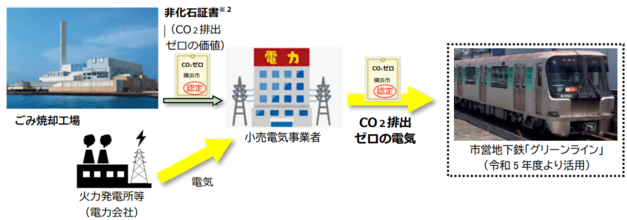Here's the text.
Incineration Plant
Last Updated January 31, 2025
- When you want to bring a large amount of garbage directly to a waste incineration plant
- When you want to visit a factory
- About waste incineration plant
- Factory data
- Efforts for Decarbonization
When you want to bring a large amount of garbage directly to a waste incineration plant
I want to throw away a large amount of garbage from moving or organizing artifacts at once.
If you want to bring a large amount of garbage directly to the waste incineration plant, you need to apply to the Resources and Waste Recycling Bureau office in your ward.
For details, please refer to the link below. In addition, a fee of 13 yen per kilogram will be charged.
Cashless payments are available for payment at four factories, Minamihonmoku landfill.
| Payment method | Payment brand |
|---|---|
| Card payment | Visa、Mastercard、JCB、American Express、Diners Club |
| Electronic money | Transportation electronic money (9 types), iD, QUICPay, WAON, Rakuten Edy, nanaco |
| Code payment | d Payment, PayPay, au PAY, Yucho Pay, Rakuten Pay |
When you want to visit a factory
You can visit the incineration plant if you apply in advance.
For details, please refer to the page of the factory you wish to visit.
You can also see parts that are hard to see in the tour with images and animations.
About waste incineration plant
In order to solve the garbage problem, it is important to promote the suppression of garbage generation and reuse and recycling. On the other hand, incineration plants are indispensable facilities for maintaining various economic activities in the city, conservation in the living environment of citizens, effective use of landfills, and efficient collection and transportation.
Currently, there are the operating Tsurumi Plant, Asahi Plant, Kanazawa Plant, Tsuzuki Plant, and Hodogaya Plant in Yokohama City.

City Resources and Waste Recycling Bureau Facility Map
Factory data
Maintenance record sheet
Tsurumi Plant | |||||
|---|---|---|---|---|---|
Asahi Plant | |||||
Kanazawa Factory | |||||
Tsuzuki Plant |
※Please see the link below for the results of exhaust gas measurement.
“Maintenance Record Form for Incineration Plants (Exhaust Gas Measurement Results)”
Other data
Amount of incinerated by Plant
Power generation and sales of electricity
Dioxin survey (in charge of investigation, etc.)
Maintenance record sheet of incineration plant (exhaust gas measurement results)
Efforts for Decarbonization
Resources and Waste Recycling Bureau is implementing various initiatives to realize a decarbonized society.
CCU: Carbon dioxide Capture and Utilization (separation, collection and use of carbon dioxide)
Yokohama City, Tokyo Gas Co., Ltd., Mitsubishi Heavy Industries, Ltd. and Mitsubishi Heavy Industries Environment and Chemical Engineering Co., Ltd. are conducting a joint CCU demonstration project in Suehiro-cho, Tsurumi-ku, Yokohama by transporting CO2 separated and collected from exhaust gas from waste incineration plants to Tokyo Gas' methanation demonstration facility and using it as a raw material for methanation.
Through demonstrations through regional collaboration, we are working to improve and expand the use of CCU technology, and to commercialize e-methane (e-methane).
CCU Instruments and ISO Tanks
Demonstration test for effective use of waste incineration heat
We are promoting a demonstration test with Toagosei Co., Ltd. to reduce local carbon dioxide emissions by using steam that does not emit carbon dioxide generated by incineration of garbage in the region.
By supplying steam generated from the incineration of waste at the Tsurumi Plant to the Yokohama Plant of Toagosei Co., Ltd., and replacing fossil fuel-derived energy consumption with zero CO2 vapor from the Tsurumi Plant to reduce carbon dioxide emissions and verifying it.
Currently, we are preparing for supply.
 Image of heat supply
Image of heat supply
Does the municipal underground railway "Green Line" run at zero CO2 for "environmentally friendly energy (electricity)"?
The electricity generated at the garbage incineration plant is "environmentally friendly energy (electricity)" that does not emit CO2. In addition to public facilities such as the city hall, the 18th ward government building and nearby sewage treatment facilities, this "environmentally friendly energy" is used by city businesses as "Hamako Electricity * 1", resulting in the use of electricity. We are reducing CO2 emissions.
Since fiscal 2023, the Green Line has been operating without emitting CO2 by utilizing "environmentally friendly energy" on the Yokohama Municipal Subway Green Line.

Image of using non-fossil certificates from incineration plants on the Green Line
※1 Hamako Electricity: By supplying the value of zero CO2 emissions added to electricity generated at waste incineration plants to local businesses through retail electricity companies, local production and local consumption of the value created from burnable garbage in the city.
※2 Non-fossil Certificates : A certificate issued by a national certification machine that proves electricity that does not use fossil fuels such as oil (the value of zero CO2 emissions). In facilities that utilize non-fossil certificates, CO2 can be regarded as zero even if electricity generated at thermal power plants that emit CO2.
You may need a separate PDF reader to open a PDF file.
If you do not have it, you can download it free of charge from Adobe.
![]() To download Adobe Acrobat Reader DC
To download Adobe Acrobat Reader DC
Inquiries to this page
Facility Division, Resources and Waste Recycling Bureau Proper Treatment Planning Department
Telephone: 045-671-2518
Telephone: 045-671-2518
Fax: 045-664-9490
Email address: sj-shisetsu@city.yokohama.lg.jp
Page ID: 323-630-037







